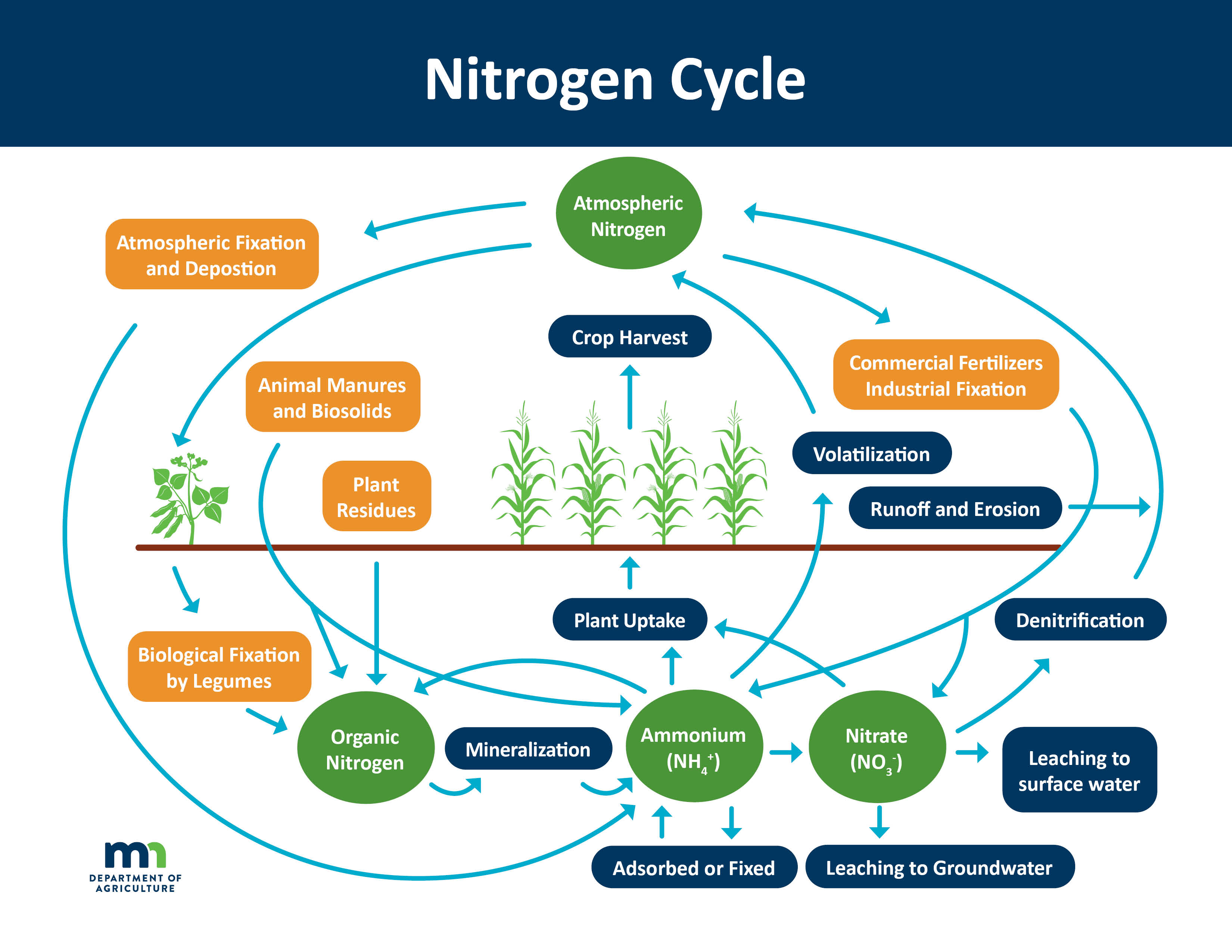Nitrogen in the environment goes through a complex cycle of chemical and biological changes. Nitrogen can take many forms including nitrate-nitrogen, ammonium nitrogen, and organic nitrogen. All nitrogen sources can turn into nitrate, which is the most mobile form. Nitrate occurs naturally in the soil. A diagram of the nitrogen cycle is located below.
Nitrate in the soil is highly water-soluble and can leach into groundwater under natural and altered conditions. This poses economic and environmental concerns. Nitrate losses occur after fires, land clearing or disturbances, and the conversion to farming operations. It is expected that some nitrogen will be lost under cropland. In Minnesota, a majority of the nitrogen contributions come from soil organic matter, fertilizer, manure and legume crops. Therefore it is important that nitrogen from these sources be managed properly to minimize environmental impacts.

Additional programs and resources to assist with Nitrogen Management
Nitrogen Fertilizer Best Management Practices
Nutrient Management Initiative
Irrigation Water Quality Protection - Irrigation Specialist

